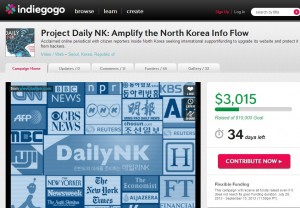According to the Daily NK:
The North Korean authorities have revised the “Ten Principles for the Establishment of the One-Ideology System” (hereafter the “Ten Principles”). The phrase “General Kim Jong Il” has been added to the revised version, whose core structure remains in place.
The Ten Principles, each of which has a number of sub-sections, reflect the demand that all North Korean citizens be guided by the thoughts and deeds of Kim Il Sung. They were formulated in the 1970s by Kim Jong Il during the process of his anointment as successor, and act as guidelines that both underwrite Kim family rule over North Korea and facilitate the mass repression of the country’s populace. They are memorized by every citizen.
A source from North Hamkyung Province revealed the breaking news on the 9th, telling Daily NK by phone, “They announced the new Ten Principles in a provincial Party meeting last week. Study of the new Ten Principles was launched in factory and enterprise cell lectures last weekend; we expect them to start study sessions on the new version in people’s units this coming weekend.” Given the timing, it is likely that study of the new Ten Principles will begin in schools when students return in September.
“They have not produced a formal pamphlet outlining the new Ten Principles, so cadres have been disseminating them from their own official documents,” the source explained. “There are no huge differences from the old Ten Principles; they have just added the words ‘the General’ after the name of the Suryeong.”
“The second principle, which used to state that ‘We must honor the Great Leader comrade Kim Il Sung with all our loyalty’ has been amended to state ‘We must honor the Great Leader comrade Kim Il Sung and General Kim Jong Il with all our loyalty’,” the source explained. “They’ve inserted the phrase ‘General Kim Jong Il’ because Kim Jong Il is Kim Jong Eun’s father, and to help make the idolization of Kim Jong Il permanent.”
In North Korean dictionaries of philosophy, the Ten Principles are defined as follows: “The ideological system by which the whole party and people is firmly armed with the revolutionary ideology of the Suryeong and united solidly around him, carrying out the revolutionary battle and construction battle under the sole leadership of the Suryeong.”
According to Yonhap (via Global Post):
The communist country changed the “10 rules of its monolithic ideological system” in June, which have a more direct impact on everyday lives of its citizens than the country’s Constitution or the bylaw of the ruling Workers’ Party of Korea (WPK).
The rules were first introduced in April 1974 to outline the importance of unconditional obedience to the leader and what actions must be taken by the country as a whole to express allegiance.
Local Pyongyang watchers claimed that the rules made up of 10 articles and 65 sections were reduced by five sections, with emphasis placed on justifying the inheritance of power by the incumbent leader by highlighting the need for the country to fully complete the legacies left behind by the country’s founder Kim Il-sung and his son and former leader Kim Jong-il.
The move marks the first time Pyongyang opted to change the rules governing the leadership system in 39 years.
“The changes are tailored to reflect the character and goal of the country under Kim Jong-un and to strengthen the leader’s grip on power,” said Kim Yong-hyun, a professor of North Korean studies at Dongguk University in Seoul.
In a characteristic dynastic succession of power in the North, the current leader Kim Jong-un took power following the sudden death of his father Kim Jong-il in late 2011.
Every North Korean is taught to pledge loyalty to each generation of the Kim family, known in the communist country as the Mount Paektu bloodline, that has run the country since its founding in 1948.
Mount Paektu, or Baekdu, located on the Sino-North Korean border, is the highest peak on the Korean Peninsula.
The latest revisions to the 10 key rules also omitted all reference to dictatorship of the proletariat and communism. The North had erased all mention of communism from its Constitution and the WPK bylaw in 2009 and 2010, respectively.
In addition, the prologue of the new rules stated that the country has acquired military capabilities based on nuclear arms and that it is in the process of striving for economic self-reliance. The North had proclaimed itself as a nuclear power when it changed its Constitution in April last year.
Related to the changes, the Ministry of Unification said that the recent amendment is part of a continuing process of trying to prop up the current leader.
“The latest move mirrors changes that have already been reflected in the Constitution and other laws,” Seoul’s unification ministry spokesman Kim Hyung-suk said.
Read the full story here:
NK Adds Kim Jong Il to ‘Ten Principles’
Daily NK
Kang Mi Jin
2013-8-9

